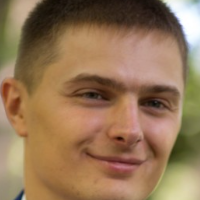International Journal of Intelligent Systems and Applications (IJISA)
IJISA Vol. 8, No. 9, 8 Sep. 2016
Cover page and Table of Contents: PDF (size: 655KB)
An Evolving Cascade System Based on a Set of Neo - Fuzzy Nodes
Full Text (PDF, 655KB), PP.1-7
Views: 0 Downloads: 0
Author(s)
Index Terms
Computational Intelligence, Machine Learning, Cascade System, Data Stream Processing, Neuro-Fuzzy System, Neo-Fuzzy System
Abstract
Neo-fuzzy elements are used as nodes for an evolving cascade system. The proposed system can tune both its parameters and architecture in an online mode. It can be used for solving a wide range of Data Mining tasks (namely time series forecasting). The evolving cascade system with neo-fuzzy nodes can process rather large data sets with high speed and effectiveness.
Cite This Paper
Zhengbing Hu, Yevgeniy V. Bodyanskiy, Oleksii K. Tyshchenko, Olena O. Boiko, "An Evolving Cascade System Based on a Set of Neo - Fuzzy Nodes", International Journal of Intelligent Systems and Applications (IJISA), Vol.8, No.9, pp.1-7, 2016. DOI:10.5815/ijisa.2016.09.01
Reference
[1]Du K-L, Swamy M N S. Neural Networks and Statistical Learning. Springer-Verlag, London, 2014.
[2]Kruse R, Borgelt C, Klawonn F, Moewes C, Steinbrecher M, Held P. Computational Intelligence. Springer, Berlin, 2013.
[3]Rutkowski L. Computational Intelligence. Methods and Techniques. Springer-Verlag, Berlin-Heidelberg, 2008.
[4]Jang J-S, Sun C-T, Mizutani E. Neuro-Fuzzy and Soft Computing: A Computational Approach to Learning and Machine Intelligence. Prentice Hall, Upper Saddle River, 1997.
[5]Arora N, Saini J R. Estimation and Approximation Using Neuro-Fuzzy Systems. International Journal of Intelligent Systems and Applications(IJISA), 2016, 8(6): 9-18.
[6]Karthika B S, Deka P C. Modeling of Air Temperature using ANFIS by Wavelet Refined Parameters. International Journal of Intelligent Systems and Applications(IJISA), 2016, 8(1): 25-34.
[7]Lughofer E. Evolving Fuzzy Systems – Methodologies, Advanced Concepts and Applications. Springer, Berlin, 2011.
[8]Kasabov N. Evolving Connectionist Systems. Springer-Verlag, London, 2003.
[9]Kasabov N. Evolving fuzzy neural networks: theory and applications for on-line adaptive prediction, decision making and control. Australian J. of Intelligent Information Processing Systems, 1998, 5(3):154 160.
[10]Kasabov N. Evolving fuzzy neural networks – algorithms, applications and biological motivation. Proc. “Methodologies for the Conception, Design and Application of Soft Computing”, Singapore, 1998:271 274.
[11]Sugeno M, Kang G T. Structure identification of fuzzy model. Fuzzy Sets and Systems, 1998, 28:15 33.
[12]Takagi T, Sugeno M. Fuzzy identification of systems and its applications to modeling and control. IEEE Trans. on Systems, Man, and Cybernetics, 1985, 15:116 132.
[13]Ivakhnenko A G. Heuristic self-organization in problems of engineering cybernetics. Automatica, 1970, 6(2): 207- 219.
[14]Ivakhnenko A G. Polynomial theory of complex systems. IEEE Trans. on Systems, Man, and Cybernetics, 1971, 1(4): 364-378.
[15]Bodyanskiy Ye, Grimm P, Teslenko N. Evolving cascade neural network based on multidimensional Epanechnikov’s kernels and its learning algorithm. Int. J. Information Technologies and Knowledge, 2011, 5(1): 25-30.
[16]Bodyanskiy Ye, Teslenko N, Grimm P. Hybrid evolving neural network using kernel activation functions. Proc. 17th Zittau East-West Fuzzy Colloquium, Zittau/Goerlitz, Germany, 2010:39 46.
[17]Miki T, Yamakawa T. Analog implementation of neo-fuzzy neuron and its on-board learning. In: Computational Intelligence and Applications, 1999:144 149.
[18]Yamakawa T, Uchino E, Miki T, Kusanagi H. A neo fuzzy neuron and its applications to system identification and prediction of the system behavior. Proc. 2nd Int. Conf. on Fuzzy Logic and Neural Networks “IIZUKA-92”, Iizuka, Japan, 1992:477 483.
[19]Uchino E, Yamakawa T. Soft computing based signal prediction, restoration, and filtering. In: Intelligent Hybrid Systems: Fuzzy Logic, Neural Networks, and Genetic Algorithms, 1997:331 349.
[20]Kolodyazhniy V, Bodyanskiy Ye. Cascaded multiresolution spline-based fuzzy neural network. Proc. Int. Symp. on Evolving Intelligent Systems, Leicester, UK, 2010: 26-29.
[21]Otto P, Bodyanskiy Ye, Kolodyazhniy V. A new learning algorithm for a forecasting neuro-fuzzy network. Integrated Computer-Aided Engineering, 2003, 10(4): 399- 409.
[22]Bodyanskiy Ye, Kokshenev I, Kolodyazhniy V. An adaptive learning algorithm for a neo-fuzzy neuron. Proc. 3-rd Int. Conf. of European Union Soc. for Fuzzy Logic and Technology (EUSFLAT’03), Zittau, Germany, 2003: 375-379.
[23]Bodyanskiy Ye, Viktorov Ye. The cascade neo-fuzzy architecture using cubic-spline activation functions. Int. J. Information Theories & Applications, 2009, 16(3): 245-259.



